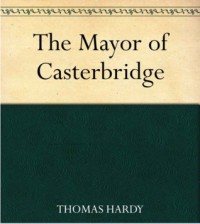

I haven’t tackled Thomas Hardy since my high school syllabus, but what a treat I had been denying myself. Various maxims spring to mind from this book (‘you reap what you sow’; ‘no man is an island’; ‘what goes up…’) emerging from the chronicled life of Michael Henchard. From very humble beginnings as a twenty one year-old hay-trusser, the main character is hard to like. He is deeply flawed on a number of levels and yet it is surprisingly fascinating to bear witness to the harsh fate which inexorably catches up with him.
As early as the first chapter, Hardy deliberately seeks to discomfort the reader, when a drunken Henchard sells his wife (Susan) and newborn child (Elizabeth-Jane) for five guineas. Notwithstanding his subsequent sense of shame and self-imposed repentance in the sober light of day, this repugnant act haunts his private life and has the attendant potential to also scupper his subsequently crafted image as the first citizen of Casterbridge.
Fast forward eighteen years and the reappearance of Susan with their now adult daughter offers the chance to make amends, but the intervening years have generated an inevitable trail of complications and though circumstances have changed, Henchard’s tempestuous nature has not. Yet, it is the tension between the social norms of English society at the time and Henchard’s earthy country perspective which is a constant source of friction. The mayor has risen to the gentrified classes a ‘self-made’ man, to be partially shackled by upper class expectations. In some ways Henchard is courageous, proud and willing to withstand public opprobrium, but he is also ruthless, manipulative and selfish, a powerful man used to getting his way (undoubtedly another key adage of the story is that ‘with power comes responsibility’).
In any event, this book is a beautifully written, unsentimental fiction, which transports the reader to a pre-industrial Wessex, by no means a bucolic idyll, but rather a class-ridden, male-dominated site of incessant struggle. Nevertheless, the characters are masterfully constructed and Hardy manages to marshal the reader’s emotions from outrage and anger through to triumph and pity, as the label of ‘victim’ seems to alight, at different times, across the cast of characters. A thoroughly absorbing read.

 4
4












